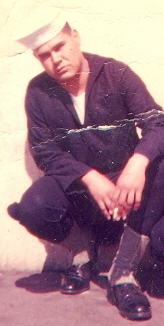TRANSCRIPTION
How was life growing up in Uvalde, TX?
It was very normal in the sense that it was a small town and everyone went to bed early and got up early. It was slower and a lot simpler. Everyone knew each other and it felt like one big family. There was hardly any crime and the people all went to church.

Why did your family move to San Antonio, TX?
Well it started, originated with my sister coming to San Antonio College. And my mother came with her and I did too. While here, my mother decided to stay here in San Antonio because there was better opportunities for jobs and since she was a seamstress, she decided for us to stay here. She and my father bought a house.

Do you remember your first job?
Yes, my first job was working for a construction company in Sheffield, TX, in west Texas. My job was to work in the ranch to let the trucks out with a materials to build the roads and let them in and open the doors for the trucks to go in and pick up the material. And that was my first job in summer, during summer break. (I asked how old he was) At that time, I would say that I was about 9 or 10. ( I asked what was his second job) My second job was here at San Antonio, I started to work in a store called Ed Louis Clothing Store, women's clothing store in the corner of I think it was St. Mary and Houston, across from Walgreens, kiddy corner from Walgreens. And my job was to help with the lay-aways and help the window dressers, which I did. I did when I got out of school at Tech High, I used to go there. Take the last bus, the line up, they called it at that time, the last bus home everyday. (why did they call it the line up?) Because the buses only ran till 1 o'clock and that was it. The buses were lined up right on Houston Street right in front of the Majestic around that block there all the way to the post office and you would catch a bus and go home. (He goes on to tell a story about the Majestic) Years ago there was descriminationreal bad. The black people had their own entrance to the Majestic. They would go in through the back. There was a place you would go in there and they would put you in about the third floor up high in the very, very top. There was descrimination. Same thing as Manhatten Restaurant downtown. For a long time, the white man descriminate against the Mexicano and the Negros, the black. They wouldn't serve them. I made it a point after I got out of the service or during the time I was in the service, to go and eat there to see if they were going to turn me down. They did not! Ofcourse, I went in uniform.

Why did you decide to join the military?
Well the situation with me going into the military was I was a senior and first, I got sick. I don't remember if it was me, first one of us got sick, it was me or my father, then my mother. But all that time, I lost going to, I lost time going to school. I caught an phnemonia well then my father, he got cancer, my mother had a gallbladder operation and all of these things just hit in one time. By the time things got back to normal, I went back to school and they told me that I had either a choice to continue going to school or get out and start the following year fresh, but I wasn't going to graduate. So I decided to get out and start the following year fresh. I got out and started to work for a company called D. Howard that was building 1604 at that time. Since I had some architectual background, I was studying to be an Architect, um..I got working as a surveyor. surveying the highway.

How did your family feel about you joining the military?
They didn't want me to join the service. My father offered me to buy me a brand new car for me to stay around here to go back to school, they wanted me to finish it.

Why did you decide to join the U.S Navy?
Me and a friend of mine, by the name of Felix Escamilla started daring each other to go in the service..so we did. We went to the main post office, we wanted to join the Marines Corp. But we sat there waiting, waiting, and waiting. Finally the Navy guy came in and the Navy man came in. We started talking to him and started feeding us coffee and getting us sober, because we were a little tipsy from the night before (laughing) so they um..so we signed up! But that time, as we got sober, we decided to ask him for atleast a week and a half so that we could take care of some business. So we did and after the week was over we end up going to basic training in San Diego, CA., the naval training center there. And that's how my career started. Marine Corp so we waited and waited for the guy to open the door to the Marine Corp recruiting office. But instead the guy from the Navy showed up first and asked us to come inside and started talking to us about the Navy so we joined

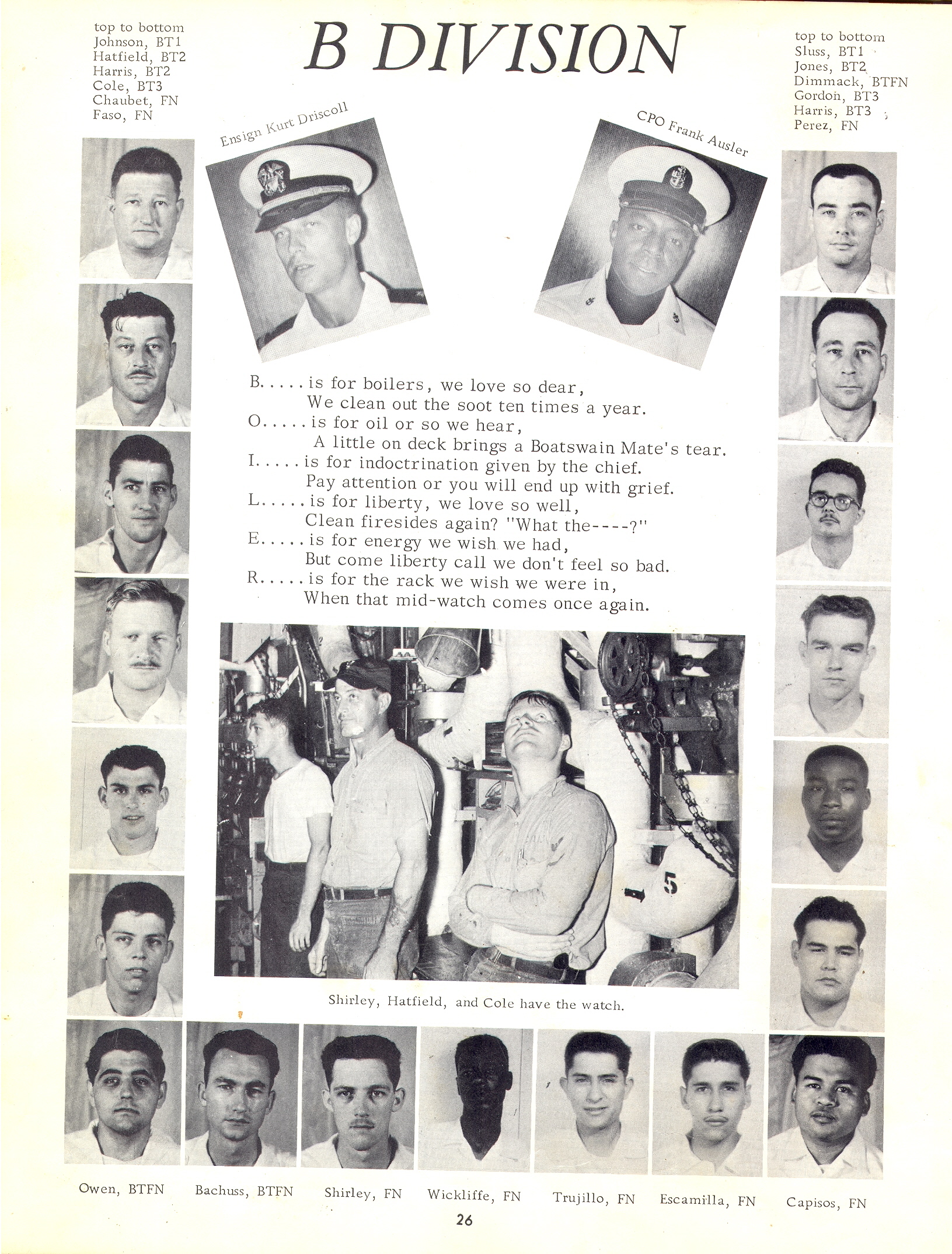
How long did you serve in the United States Navy?
Four years.
What were your duties in the U.S Navy?
I was what they call a BT, it was working in the engine room. But ofcourse, during work time, or during all that, we had to share other duties while we were at Vietnam. We were doing like 10 hours on and 4 hours off around the clock because we were in the middle of action there. While working in the engine room, one of our duties is to make electricity, to make power for the ship and also make fresh water out of salt water. (I asked, How did he do that) With chemicals, purified, to purify the water.
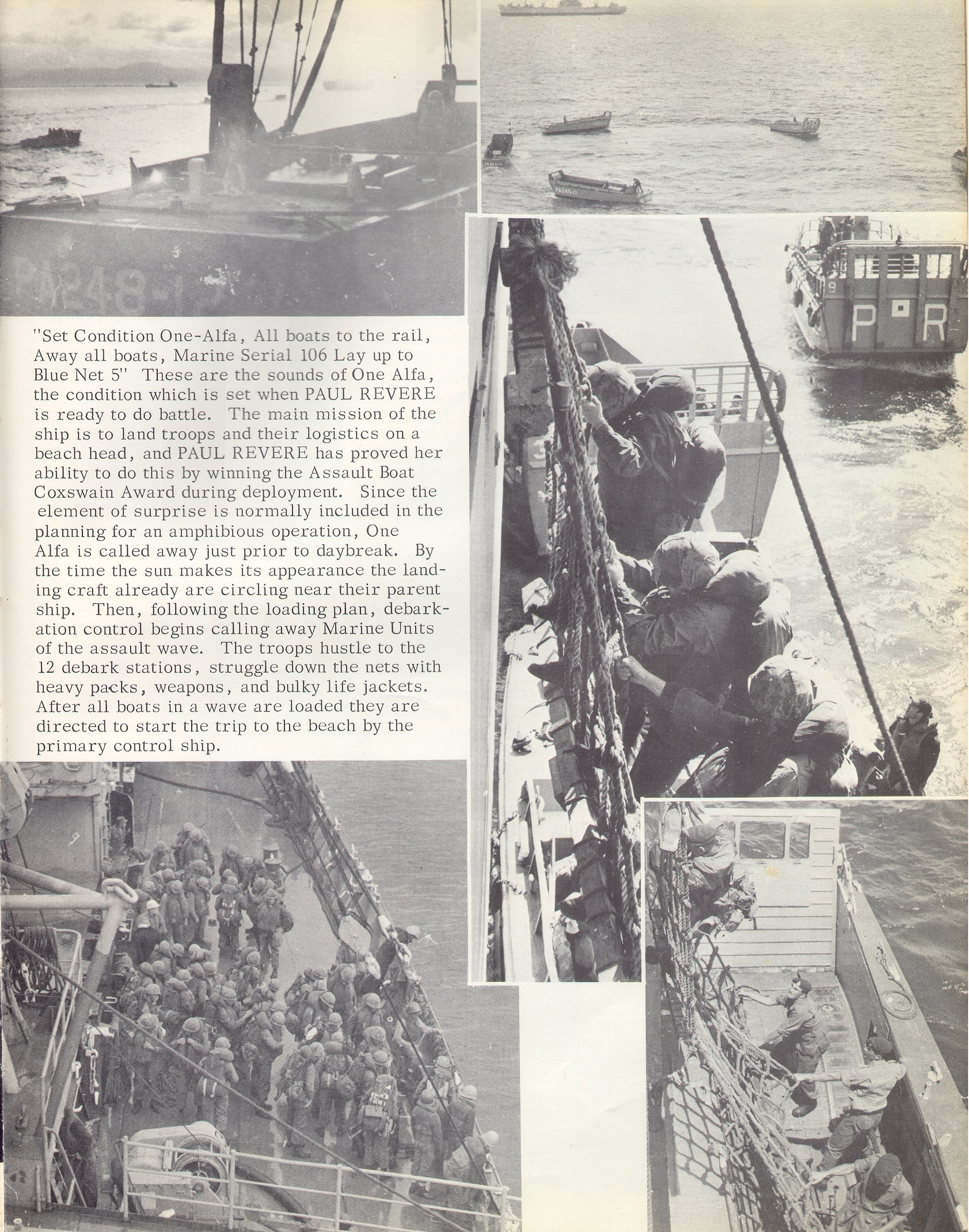
What was the name of the United States ship you were aboard?
U.S.S Paul Revere 248 APA. To transport amphibious ship. We transferred Marines to battle with their equipment, trailers, jeeps, sometimes tanks, and whatever. That was our main goal to assist them..the Marines, and disembard them on the beaches.


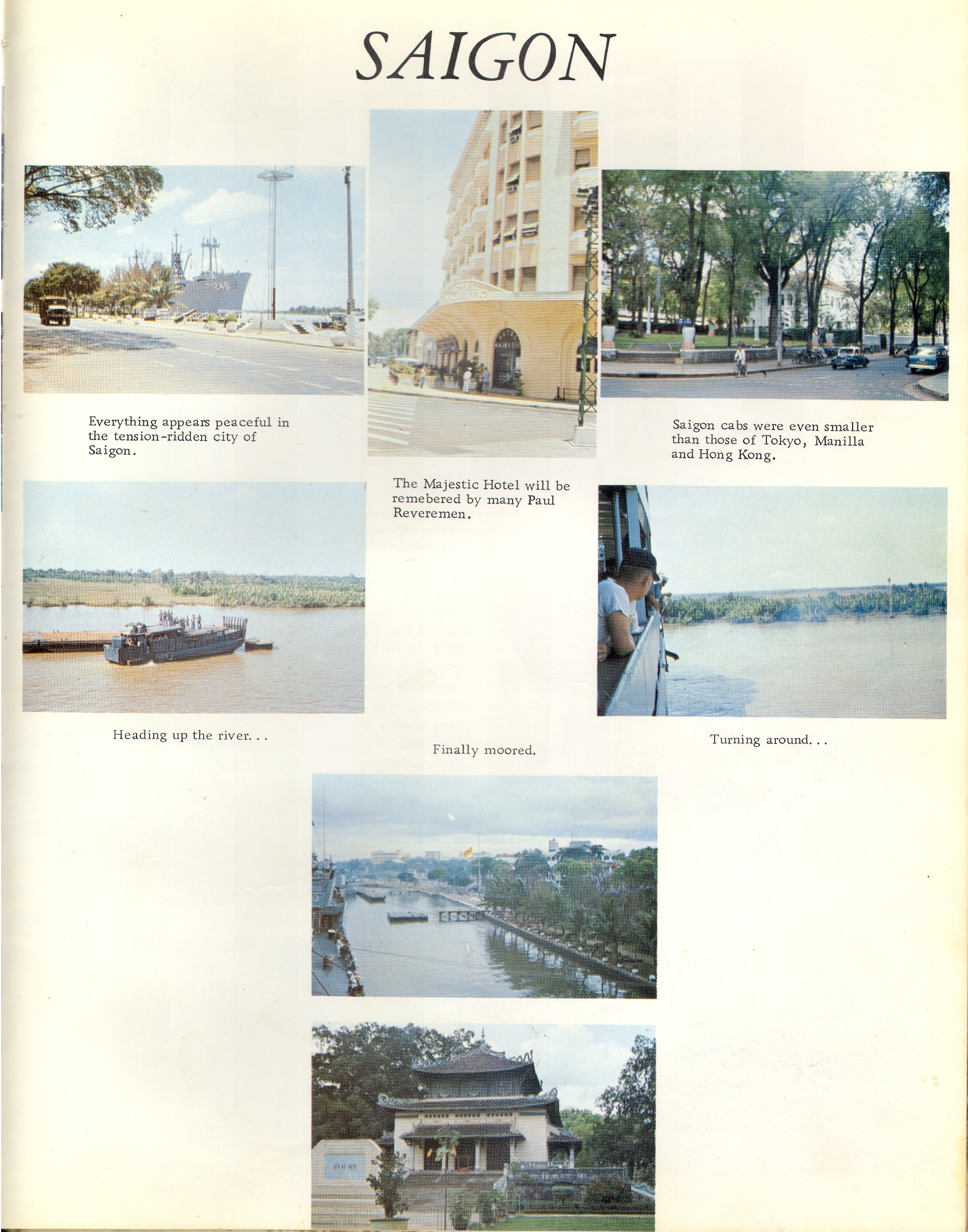
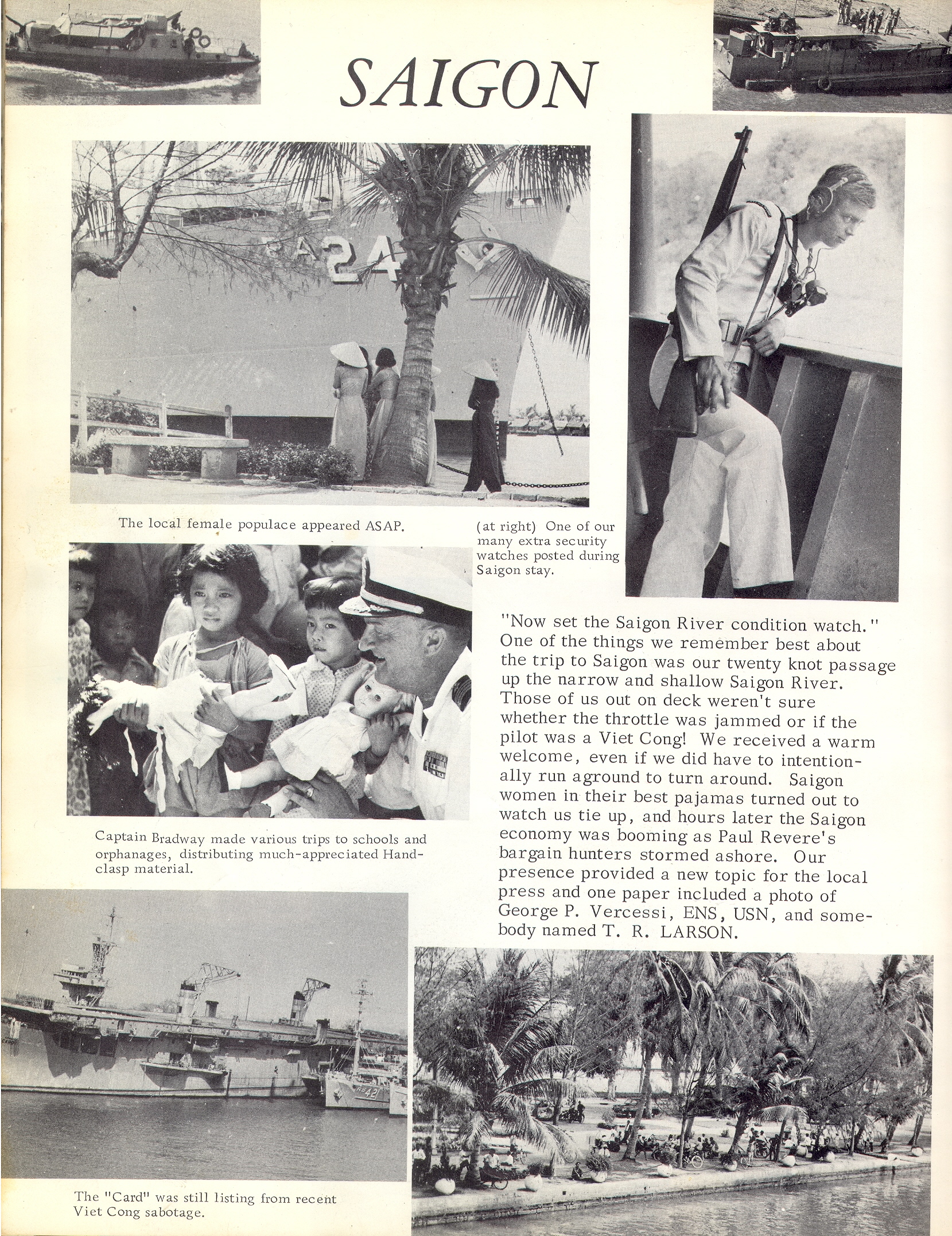
Did the U.S. ship you were aboard, ever launch any missiles?
We did some shooting in there at Vietnam. We assisted the Marines a couple of times because they were on the beach and needed help. So we did shoot our guns, we shot the big guns they have.
Did you understand the purpose and meaning of the Vietnam War?
At first no, we were just doing our duties for our country. As time went by, we kind of learned that war is Hell and what it was all about. It started as assisting the Vietnemese, and then it turned out that we really got involved in more of a political war.
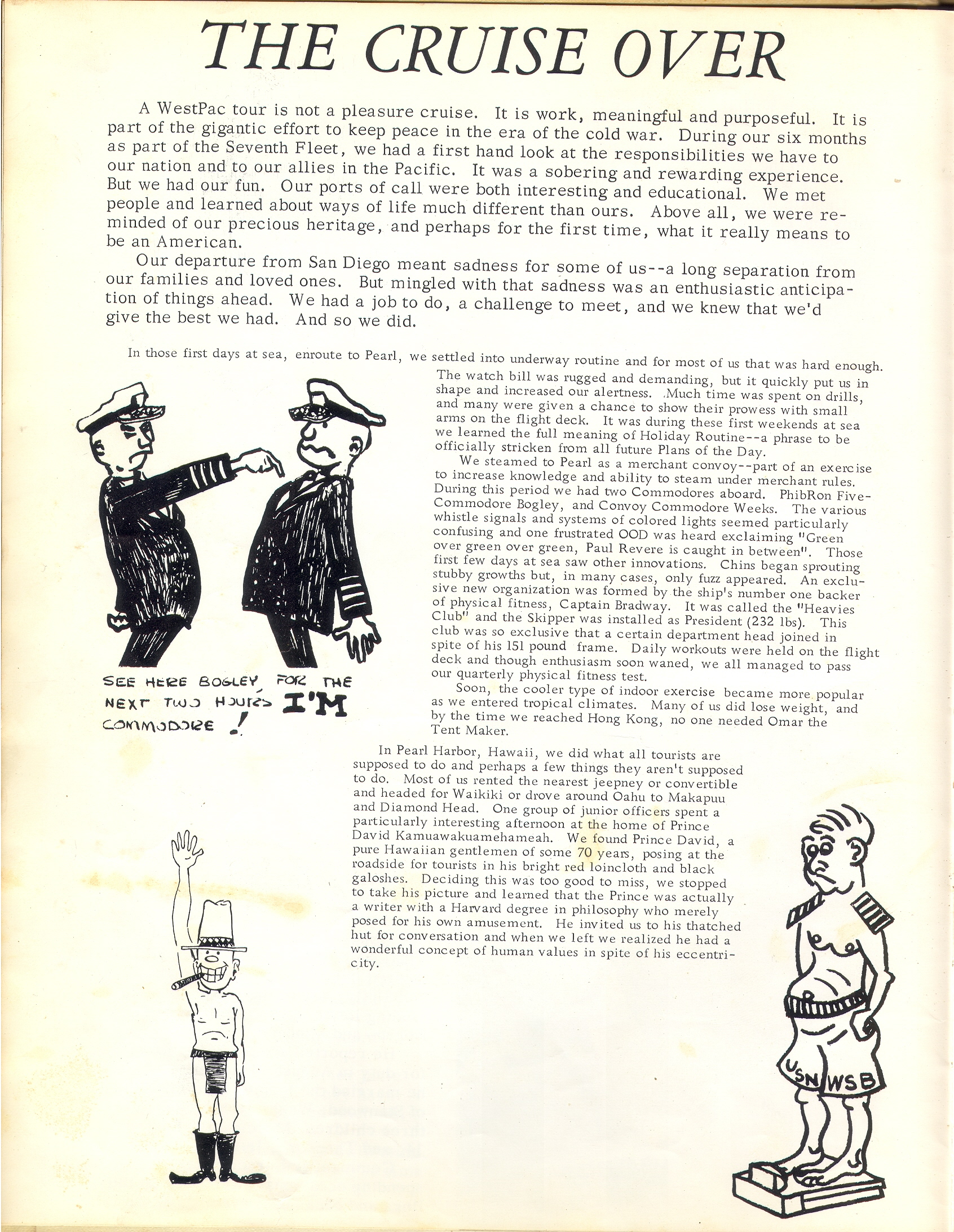
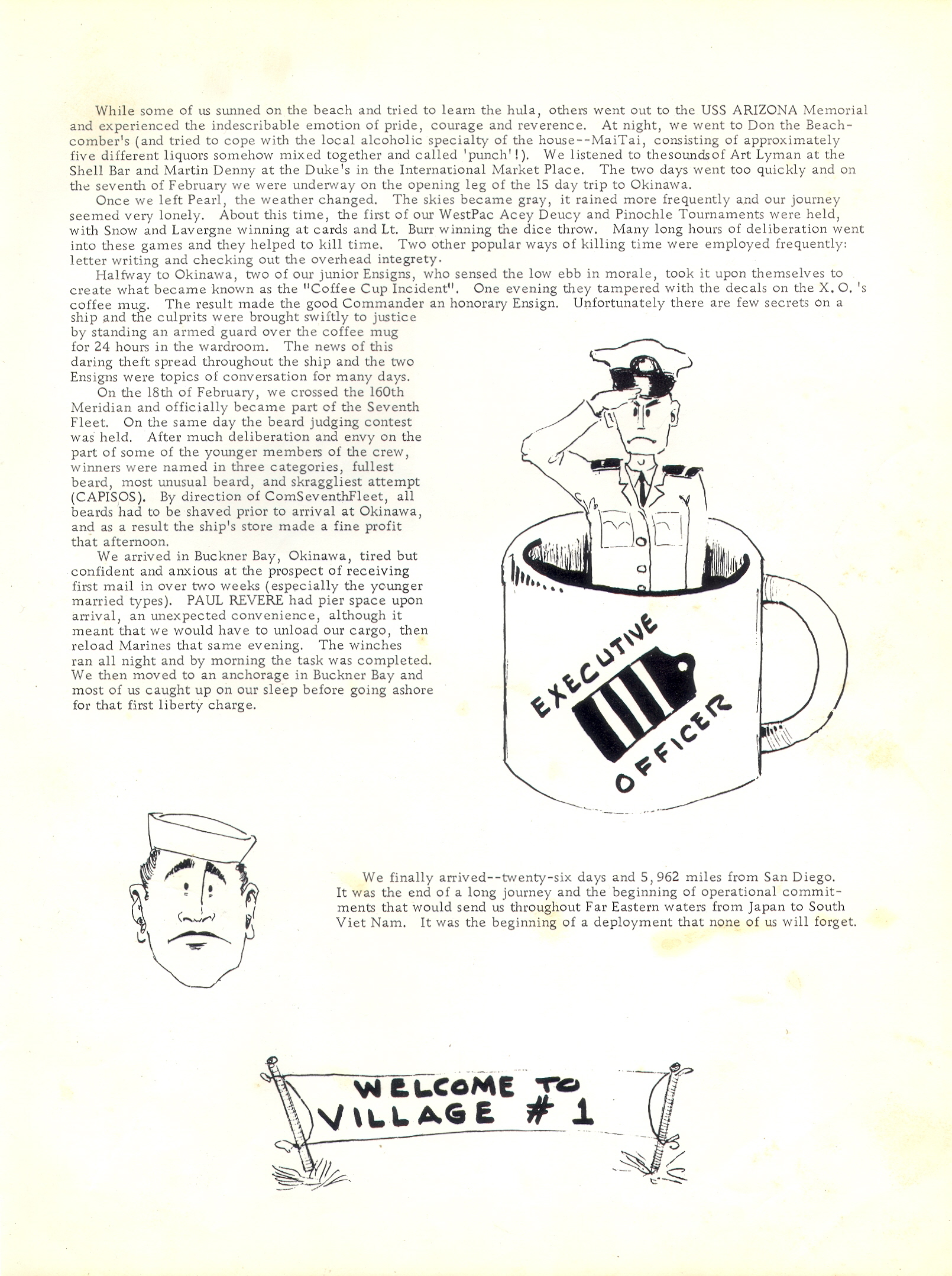
How was the U.S soldiers looked upon by the civilians of Vietnam?
At first they didn't like us ok, but as things went by , and they started changing their ways or seeing our ways were better, life was better and there was more money available, and more things available to them, they started begining to like us.
What were the dangers out in the field?
You always had the Vietcong all over, you didn't know who the Vietcong was. It was a child, a little old lady, a young guy, a soldier, a Vietnemese. You didn't know. You didn't know who your enemy was. You always had to be on guard, because it was very difficult. You don't know who the enemy is. It wasn't like other wars that they wore a uniform and you could spot your enemy, not this one. The ones who had it worst were the Marine Corp. in fields cause they were out in the jungle, there were booby traps, they would set up booby traps on them and some of them would get hurt pretty bad. They would poison the booby traps and sometimes they wouldn't make it. The dangers we had, we used to operate what they call landing crafts and we use to disembarg them in the landing crafts, but sometimes, during the day, at the end of the day, a tie would go out and we would get stuck on the beach, and all we had to defend ourselves was two guys, me and somebody and another guy, a sailor. And they, um..all we had was a M1 and they would shoot at us. Sometime, after a while, we requested for them to give us something a little more bigger. They mounted a 50 calibur machine gun on the boat and it was a little different. You did feel a little more secure.
How were injured soldiers transported back to base?
They would pick them up in choppers and bring them back to the hospital. We had a small hospital on board and take care of them there. The ones that were dead were in body bags and when they use to bring the body bags and start running out of space, they used to put them in the freezers where we use to keep the food. Let me tell you, I lost my appetite a couple of times between 3 to 4 to 6 months. I was eating sea rations, cans, sea rations, cause just the thought that this guy that I knew was in the freezer and his body was there. Ofcourse, they wouldn't keep the bodies too long, maybe a day or two, three days max., but um..just the thought of it was sometimes very hard. It used to work on your mind.
Were there any bodies left behind?
I'm sure there were, I'm sure there were, alot of men left behind, but ofcourse we wouldn't hear too much about it.
WWhat was the worst experience you had?
The Chicanos you know we had them on the ship. Everybody would look for each other. You would run into, Hey where are you from? I'm from, from El Chuco, El Paso, I'm from Waco, I'm from Hustone, um..from the Big D. And you get to know the guys and talk to them and all that and then the following couple of hours later, you were dropping them on the beach and then about 2 or 3 hours later, 4 hours later or during the day, you'd be bringing them back in body bags. And to just to talk to them and seeing them, you couldn't believe it! And that kinda gets to you.
What diseases were there in Vietnam that you were warned about?
In general, there was all kinds of disease. Some of these countries are third world...like Vietnam and there's diseases there that you wouldn't believe...you know so...venereal disease to TB...um...Malaria and things like that. There was a whole bunch of them where you had to be very careful, very careful where you were around because even though you didn't want toaccept it, but it was there.
When you finally returned home, how did you feel?
Well, I felt...I felt betrayed. In San Fransisco,while I was there in San Fransisco, I got spitted by the "Flower Power", baby killers, calling us all kinds of names and stuff. Um...In San Diego, in LA too...the airport...they did the same thing too. I, you know, we were there because our government, our country had put us there and ordered us to defend this country, but they didn't understand it. You know of course they were enjoying all teh good things of this country, but they had never beento war. They never knowthe pain and aches and the suffering tehy put us through unless you've been through it.
Do you experience any flashbacks?
YES! When I came back home for about approximate 1 year, I had flashbacks and I also had Post SyndromeVietnam , that's why I'm getting help. I learned from training how to cope with it through the VA and began helping others with problems when they were coming back from Vietnam. Not only men were affected but the women too. They dealt with it in a different way. They shut down and didn't want to accept it. They wouldn't want to talk about it I would go through out San Antonio and search for women who had Vietnam Post Syndrome and help them by getting them help through the VA.
Do you still keep in touch with your comrades?
No, I haven't. I only kept in touch wtih Felix Escamilla...with him because we were from San Antonio and we joined together.


How long were you in Vietnam?
I went 3 times ok and each tour was from 9 to 11 months and so there were 3 tours. I joined January 27, 1963 and got out in January 27, 1967.
What ever happened to your ship?
My ship, when I got off on it, I heard about a couple of months afterwards that they had put it in "mothballs", that's when they decommission a ship. They take it out of operation adn it was in San Diego and it was there for a while and then through um...a magazine through the Navy puts out... a couple of years, I heard that it was sold to Spain, and that was the last time I heard of it.
What advice would you give to our present day soldiers who are being deployed overseas?
#1, always be in the alert, always take care of #1. When your by yourself out there, you...you have your comrades and um...take ...gotta take care of each other, but there's nothing more important than yourself.
Now that you are retired, how do you spend your days?
I um...I have different hobbies. I do woodwork. I work leather. I do um...saddle bags and stuff like that, but mostly woodwork. I like to work..do woodwork and also my religions. I'm a 32nd Mason, also I'm a Rosa Cruz, which is the study of the mystics. 32nd Degree Mason (Rosa Cruz). I just try to live my life and try to take care of my family.
Would you like to add any final words?
Well um...it's actually been a little therapy for me to get some of these things off my back by talking to you and letting you know. Um...it's when I came back, I couldn't talk about it. It was very hard for me. I kept it inside.


